Improving spelling skills Worksheets for Ages 4-8
7 filtered results
-
From - To
Enhance your child’s spelling skills with our engaging worksheets, specially designed for ages 4-8. Our collection offers a variety of fun activities, enabling young learners to practice essential spelling patterns and vocabulary in an interactive way. Each worksheet encourages creativity while reinforcing phonetic awareness, helping children build their confidence in reading and writing. With colorful illustrations and easy-to-follow instructions, these resources are perfect for both classroom settings and at-home learning. Unlock the joy of spelling with our comprehensive worksheets that guide your child on their educational journey while making learning an enjoyable experience! Explore now and set the foundation for future success!
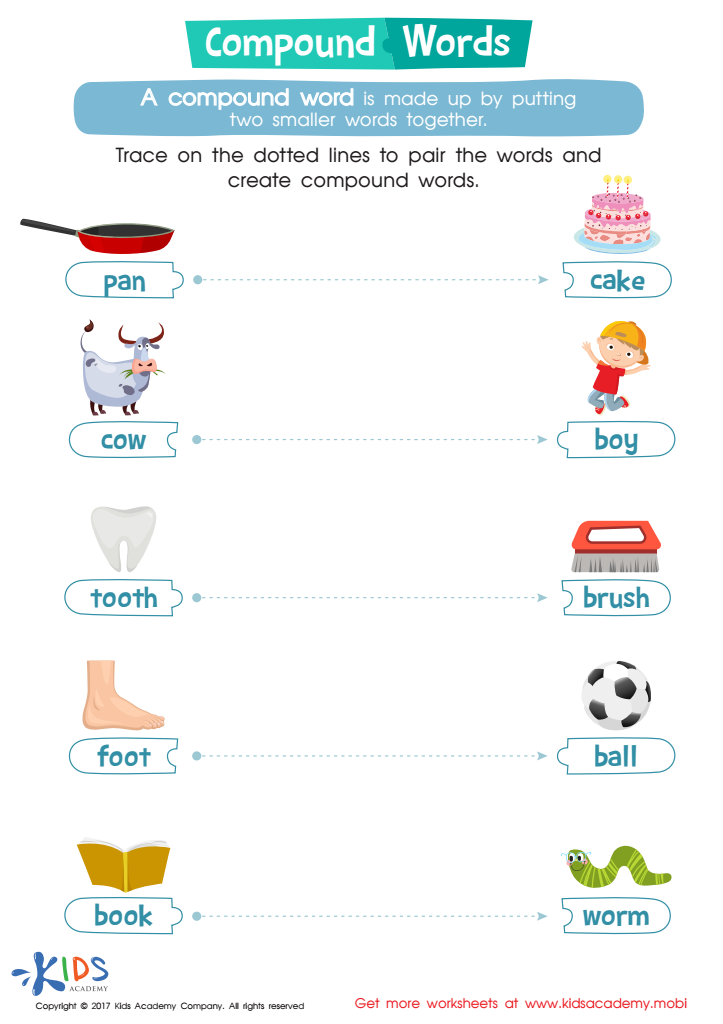

Compound Words Word Structure Worksheet
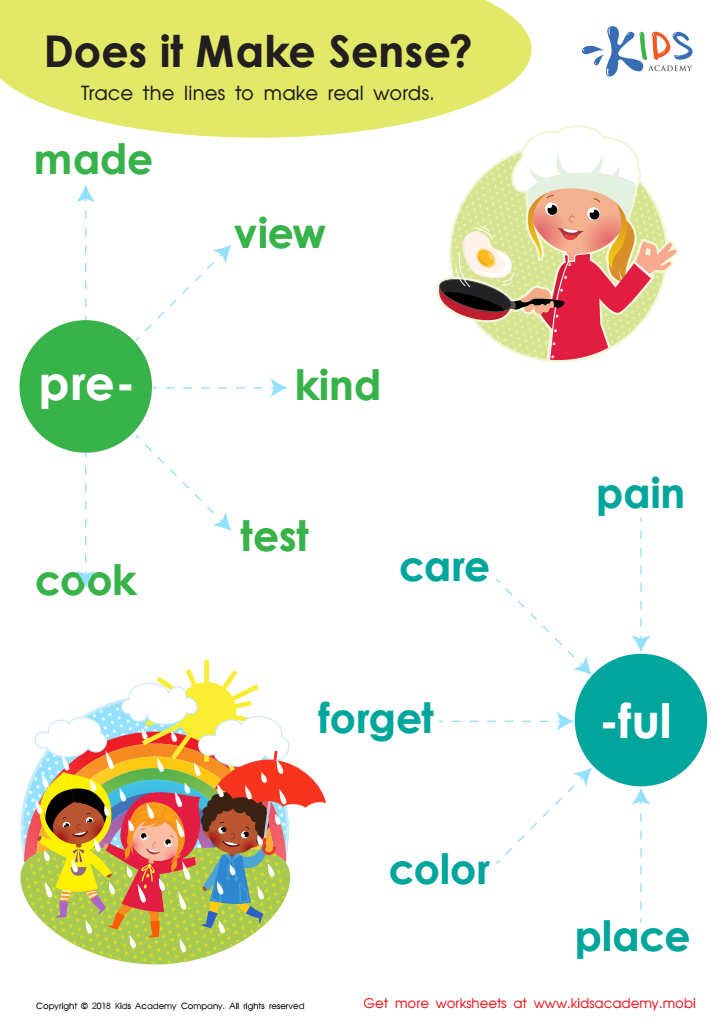

Prefix pre– and Suffix ful– Worksheet
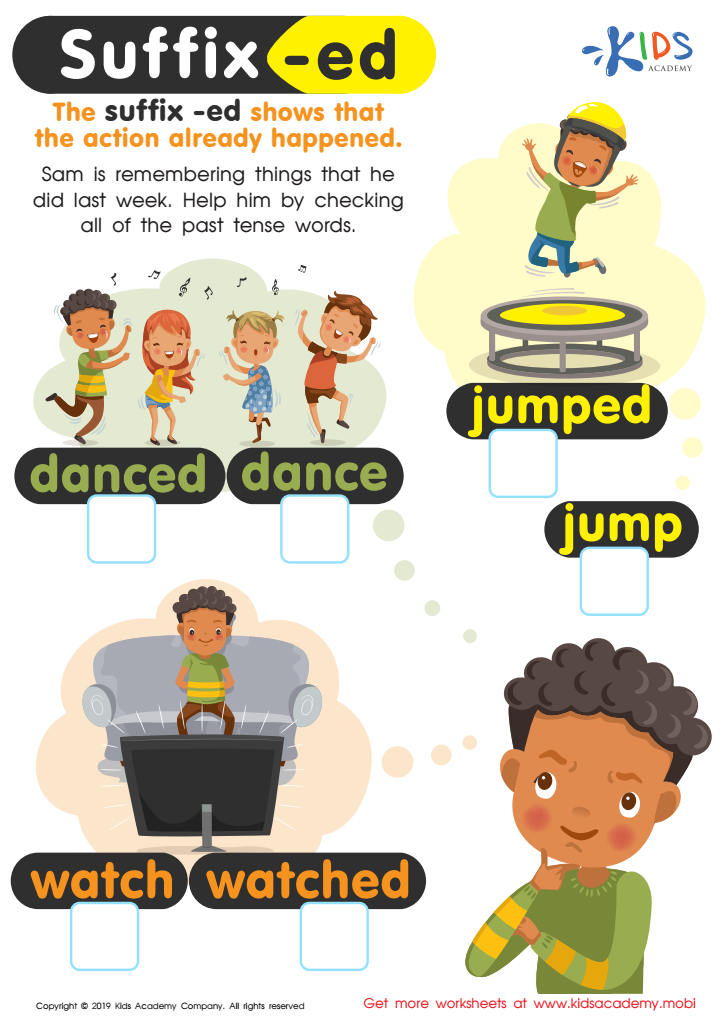

Suffix-ed Worksheet
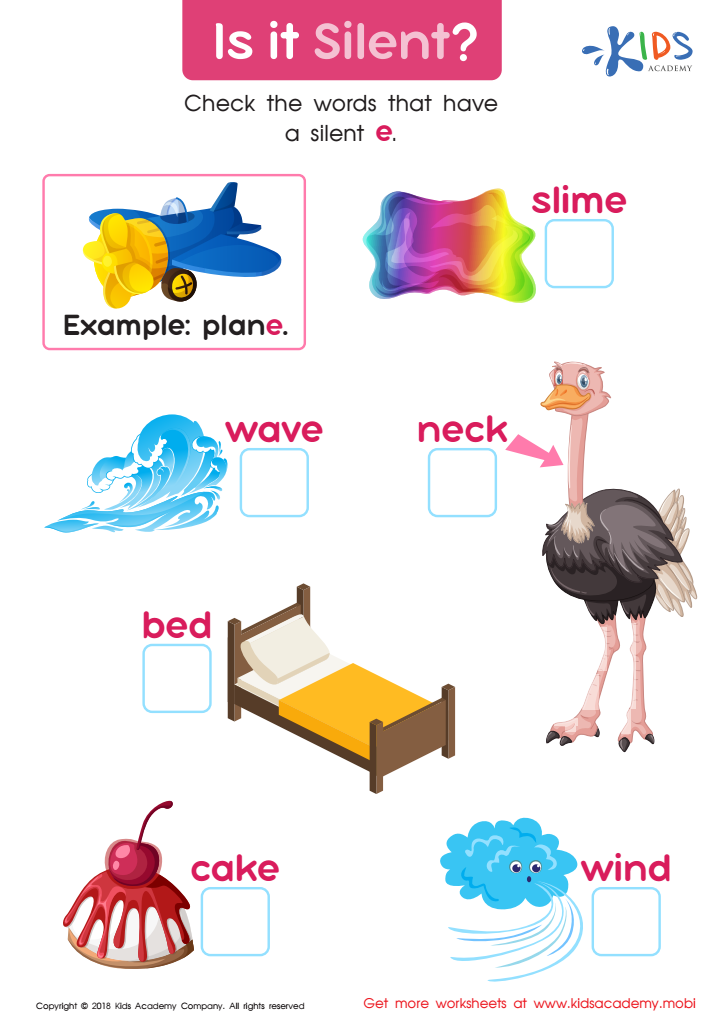

Is It Silent? Worksheet
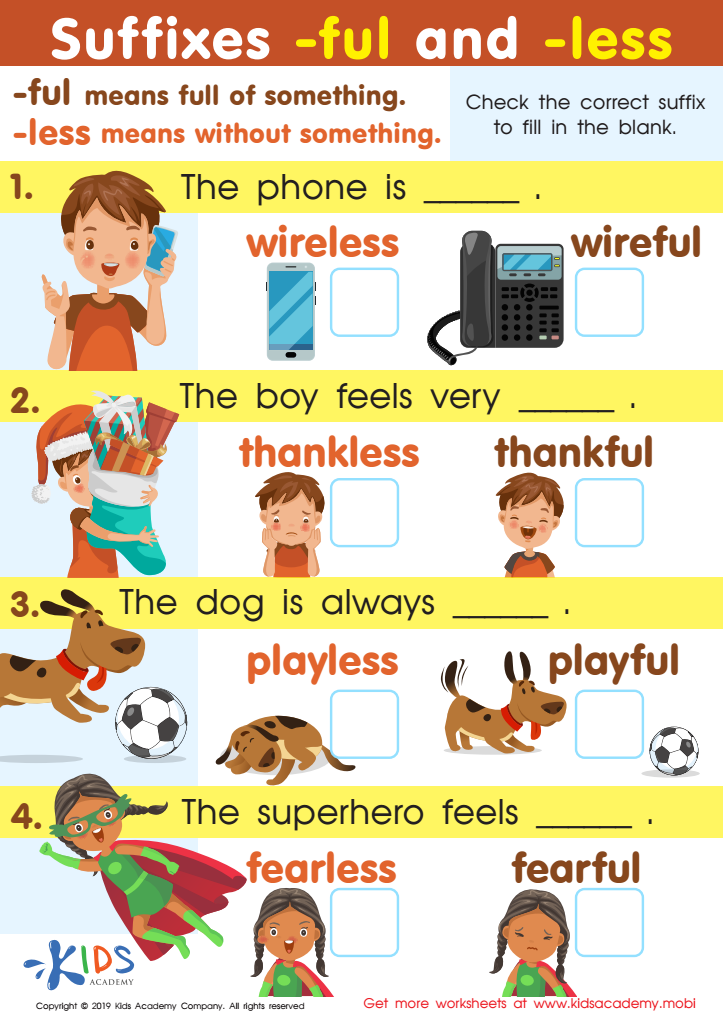

Suffixes –ful and –less Worksheet
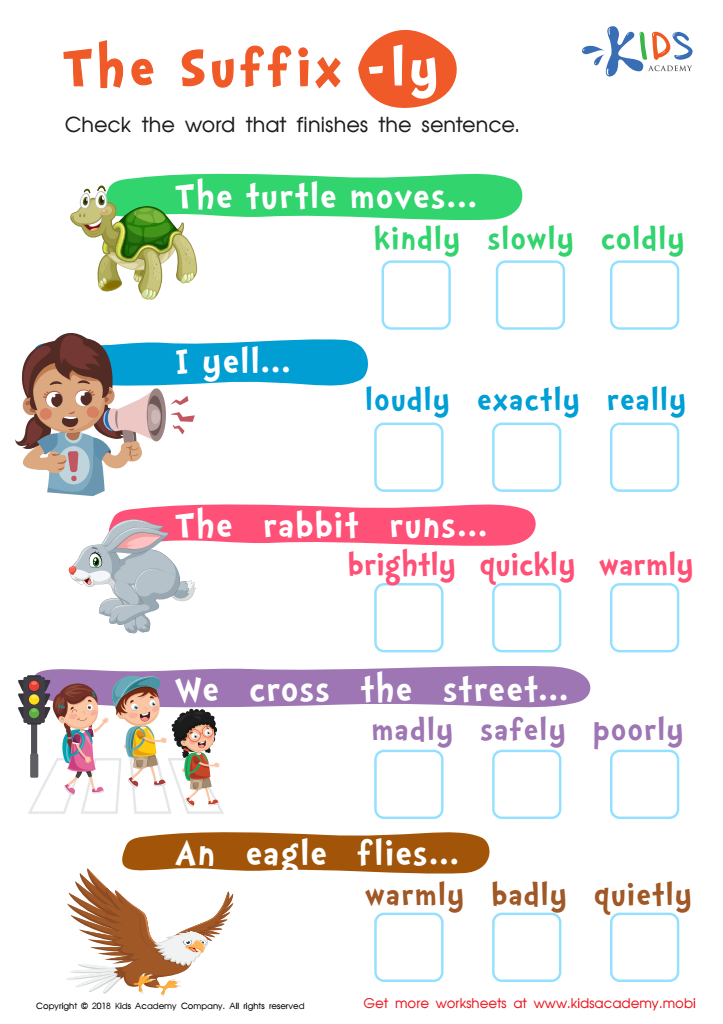

The Suffix -Ly Worksheet
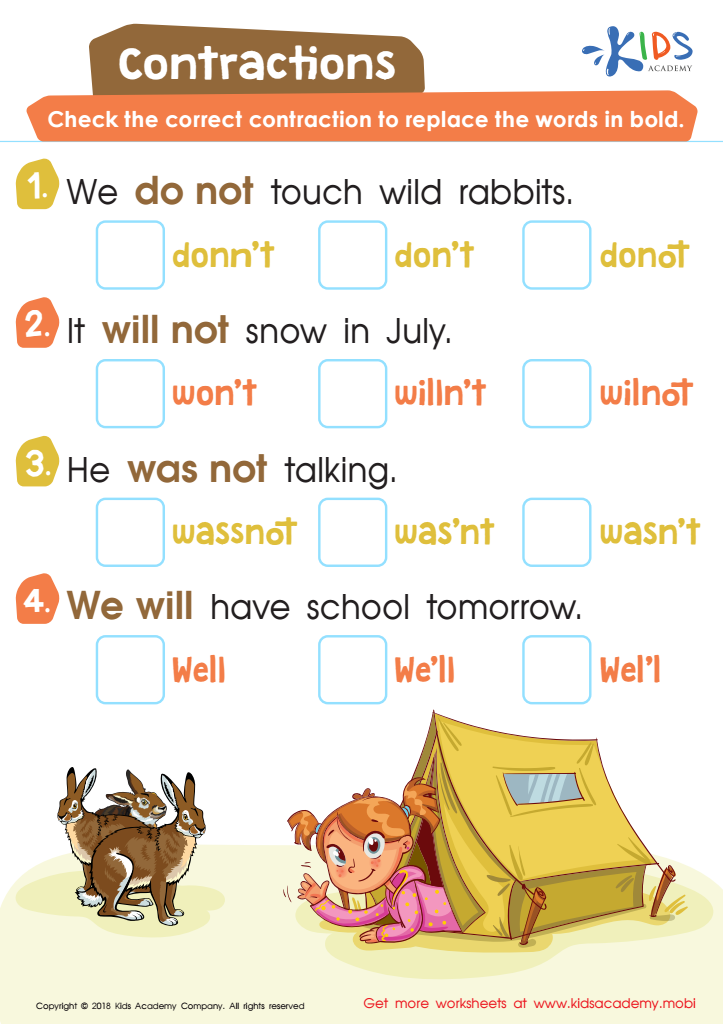

Contractions Worksheet
Improving spelling skills for children aged 4 to 8 is crucial for several reasons that impact their overall literacy development and academic success. During these formative years, children are not only learning to read but also developing the foundational skills needed for writing and effective communication. Strong spelling abilities enhance their confidence in expressing ideas, which is vital as they transition into more complex language tasks.
Furthermore, mastering spelling improves reading proficiency, as familiarity with word structures and patterns aids in decoding unfamiliar words. Spelling practice also reinforces vocabulary development, helping children understand word meanings and usage in context. This dual benefit positions them for better comprehension as they progress in their education.
Additionally, good spelling skills build self-esteem. Children who can spell correctly may feel prouder of their work and more eager to participate in writing activities. For teachers and parents, focusing on spelling helps create a supportive environment that fosters a love for learning. Encouraging spelling through fun and engaging activities can spark interest in reading and writing, essential skills that will serve children throughout their academic journey and beyond, ultimately contributing to lifelong learning and success.
 Assign to My Students
Assign to My Students















